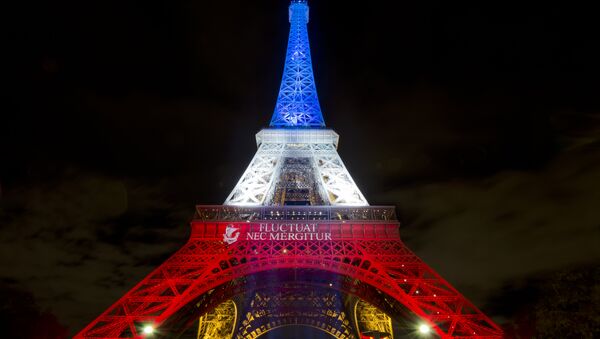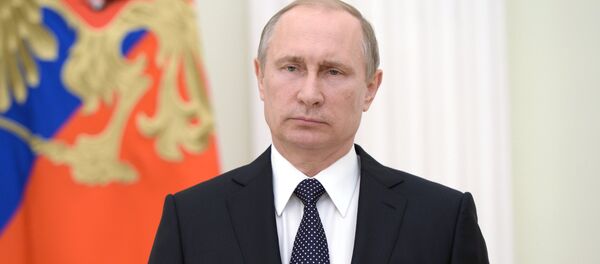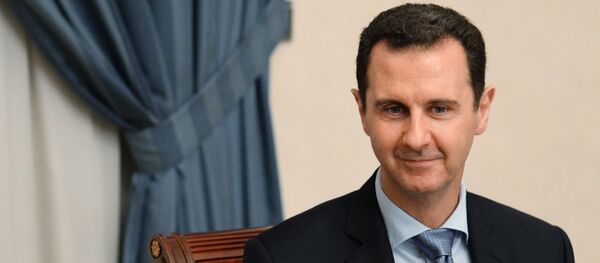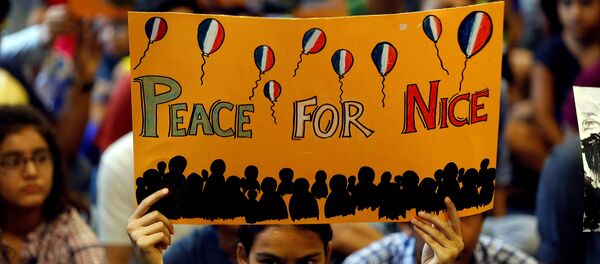Last Thursday, a truck deliberately rammed into a large crowd in the southern French city of Nice during the country's Bastille Day celebrations. Eighty-four people were killed, and hundreds more injured in what has since been described as 'the worst day in the city's history'. The violence was the third major attack against France by jihadist terrorists since January 2015.
As was the case after the previous attacks, in addition to offering their condolences, Russian officials and commentators also reiterated proposals for cooperation by the international community in the fight against terror.
For his part, Russian President Vladimir Putin issued an emotional appeal addressed to French President Francois Hollande and the French people, saying that "the cruelty and cynicism of this crime, committed on your National Day, is astonishing," and emphasizing that "only by working together can we defeat terrorism."
In his party's 11-point plan, which includes straightforward proposals such as strengthening foreign and domestic intelligence, consolidating anti-terrorist legislation in the courts, and outlawing Salafite and Takfirist preachers and their financial donors on French territory, the politician also proposed some original ideas, seemingly unpopular among France's traditional political elite.
Specifically, point six of the proposal calls for the "establishment of a close relationship with Russia's intelligence and counterterrorism services." Point seven, meanwhile, calls for Paris "to resume the activities of its Embassy in Damascus, in order to exchange the information necessary for tracking terrorist groups." France's Embassy in Syria has been shuttered since March 2012, following the beginning of an Arab Spring-inspired civil war in that country.
Ultimately, Kuzmanovic stressed, Paris must take these measures "as soon as possible; otherwise, we will risk seriously undermining national cohesion, and moving away from democracy, which is particularly dangerous ahead of next year's presidential elections."
Discussing the implications of the politician's proposals on the French news and opinion journal Mediapart, many users agreed with Kuzmanovic's line of thinking. For his part, a user named Christian warned that merely increasing France's military operations, whether in Syria, Iraq, Libya or Mali, would not be enough; nor would simply extending the state of emergency. As for NATO's continuing escalation of its confrontation with Russia, the user emphasized that this policy has only resulted in adding to the dangers faced by Europe, without tackling terrorism.
Among other things, the user noted, embassies "allow the DGSE [French foreign intelligence] to have an official antenna, which is now sorely lacking given the number of jihadists making a roundtrip from France to Syria and back."
Ultimately, it remains an open question whether the French government will stop and listen to the proposals being made by the Left Party, and by others from across the French political spectrum. But one thing is obvious: so long as terrorist groups including Daesh and Al-Qaeda continue to exist and operate, whether in Syria or in mainland Europe, France and the rest of continental Europe will remain vulnerable to vicious and senseless attacks of the kind that rocked Nice Thursday night.




